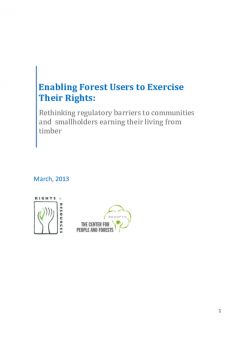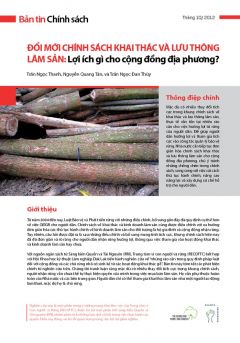Focal point
Location
The Rights and Resources Initiative is a strategic coalition of international, regional and community organizations engaged in development, research and conservation. Together, we are working to encourage greater global commitment and action on pro-poor tenure, policy and market reforms.
The RRI coalition is formed by a group of core Partners who conduct work in specific areas of their regional and thematic expertise. Partners also engage with a wide group of collaborators who participate in and support RRI activities around the world. RRI is a strategic coalition that goes beyond the traditional set of international development actors to involve a wide spectrum of organizations, each of which provides a critical perspective in the larger chain of actors necessary to advance change.
Our Mission
RRI’s Mission is to support local communities’ and indigenous peoples’ struggles against poverty and marginalization by promoting greater global commitment and action towards policy, market and legal reforms that secure their rights to own, control and benefit from natural resources, especially land and forests.
Global Challenge, a Global Opportunity
Forests cover close to 30 percent of the world's land area, and more than a billion people rely on forests to a significant extent for their food, fuel and income.
An estimated 350 million indigenous and tribal peoples are at least partly dependent on forests, including some 60 million who are substantially dependent on forests for their subsistence and livelihoods. Forests are also particularly important to poor women, who shoulder much of the burden for hauling wood and collecting and marketing forest products.
Dominant models of forest industry and conservation have often exacerbated poverty and social conflicts and have precluded pro-poor economic growth. The lack of clear rights to own and use forest land, develop enterprises, and trade in forest products has driven millions of forest dwellers to poverty and encouraged widespread illegal logging and forest loss.
The world will not meet national and global goals to reduce poverty and protect the environment unless poor peoples' rights to land and resources are strengthened. Neither will the world effectively mitigate or adapt to climate change without clarifying local tenure and governance. The next two decades are critical--both for the poor and for the forests.
There are reasons for optimism. Organizations of indigenous peoples and forest-dwelling communities are gaining voice and opportunity, and after decades of limited action many countries are beginning to consider far-reaching legal and policy reforms. There is a major opportunity to advance the rights and livelihoods of forest peoples by establishing the institutional foundations for sustained conservation and forest-based economic development.
Resources
Displaying 71 - 75 of 109Enabling Forest Users to Exercise Their Rights: Rethinking regulatory barriers to communities and smallholders earning their living from timber
In many Asian countries, communities and smallholders are faced with barriers to exercising their tenure rights and to making a living from selling timber and other forest products. This study puts forward an effort to respond to the issue of restrictions, in the form of regulatory barriers, in the pursuit of sustainable forest management.
Landowners or Laborers. What choice will developing countries make?
Includes the fundamental choice: landowners or laborers?; state of forest tenure rights in 2012: progress and unfulfilled promises; 2012 in focus: choices and their consequences; looking ahead to 2013.
The Financial Risks of Insecure Land Tenure: An Investment View
This paper investigates the real financial consequences of investing in land with disputed tenure rights. It demonstrates that companies which ignore the issue of land tenure expose themselves to substantial, and in some cases extreme, risks. Using case study analysis, the paper connects ground-up financial thinking with empirical reality. In so doing, it makes a strong case for the need to integrate tenure-related risks more comprehensively into our financial architecture.
Tenure (In)security and agricultural investment of smallholder farmers in Mozambique
Includes discourse on land tenure reforms and tenure security, conceptual framework, evolution of land tenure reform and agricultural productivity in Mozambique, data and estimation strategy, results, conclusion. Analyzes the determinants of household perceived tenure insecurity and its effect on long-term land-related investment. The presence of a significant demand for certificates of land ownership implies the opportunities to strengthen the pro-poor impacts of the ongoing land reform programmes by establishing a system that would respond to this demand effectively.
Đổi mới Chính sách Khai thác và Lưu thông Lâm sản
Mặc dù có nhiều thay đổi tích cực trong khung chính sách về khai thác và lưu thông lâm sản, thực tế vẫn tồn tại nhiều rào cản cho việc hưởng lợi từ rừng của người dân. Để giúp người dân hưởng lợi và tham gia tích cực vào công tác quản lý bảo vệ rừng, Nhà nước cần tiếp tục đơn giản hóa chính sách khai thác và lưu thông lâm sản cho cộng đồng địa phương, chú ý tránh những chồng chéo trong chính sách, song song với việc cải cách thủ tục hành chính, nâng cao năng lực và xây dựng cơ chế hỗ trợ cho người dân.






